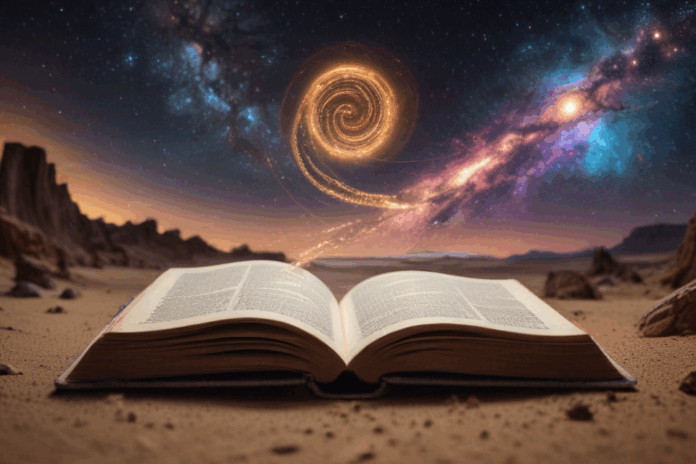This collection is a gateway to exploring the wonders of science, the complexities of the universe, and the possibilities of the future. From unraveling the secrets of space and time to examining the intricate history of humanity and the ethical challenges of progress, these books combine groundbreaking ideas with thought-provoking narratives. Whether you’re passionate about the cosmos, curious about evolution, or fascinated by speculative futures, these essential reads are guaranteed to inspire, challenge, and expand your perspective. Perfect for curious minds and lifelong learners alike!
Below is a curated list of science fiction and fantasy books that seniors might find particularly engaging.
1. “Old Man’s War” by John Scalzi
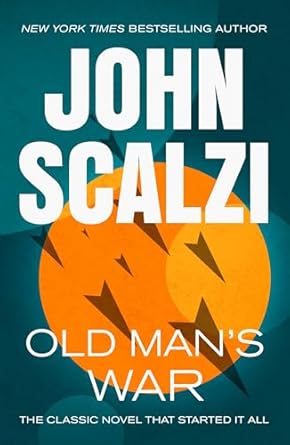
John Scalzi’s “Old Man’s War” introduces readers to 75-year-old John Perry, who joins the Colonial Defense Forces to fight in interstellar wars. Initially celebrated for featuring elderly protagonists, some readers felt disappointed when the characters are rejuvenated into young bodies, feeling that it loses the unique perspective of older characters.
2. “The Calculating Stars” by Mary Robinette Kowal
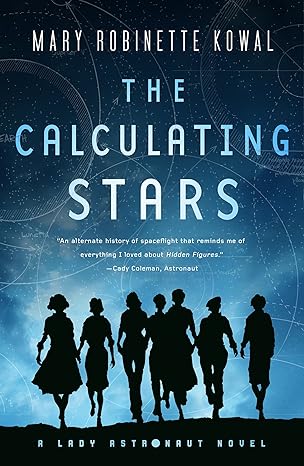
Set in an alternate 1950s, a catastrophic meteorite strike accelerates humanity’s efforts to colonize space. The story follows Elma York, a skilled mathematician and pilot striving to become the first female astronaut. This novel offers a narrative with adult appeal, delving into themes of gender equality, perseverance, and societal transformation.
3. “A Brief History of Time by Stephen Hawking
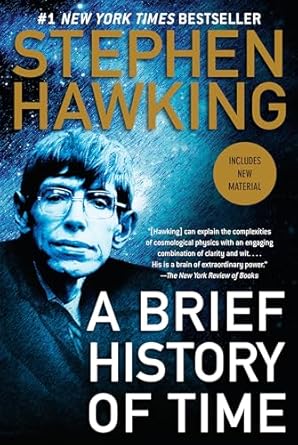
A Brief History of Time by Stephen Hawking is a landmark book that explores some of the most profound questions about the universe. Written for a general audience, it delves into topics like the nature of space and time, black holes, the Big Bang, and the search for a unified theory of physics. Hawking explains complex scientific concepts in accessible language, blending cutting-edge physics with philosophical inquiries about humanity’s place in the cosmos.
4. “Exhalation: Stories” by Ted Chiang
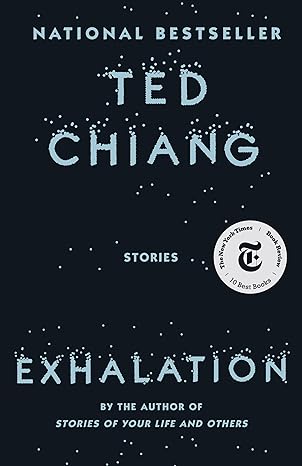
“Exhalation” is a collection of thought-provoking short stories that examine concepts like free will, fate, and the nature of consciousness. Ted Chiang’s writing encourages readers to ponder deep philosophical questions, aligning with the desire for philosophically deeper science fiction tailored to mature audiences. Each story offers a unique exploration of humanity and technology.
5. “Foundation” by Isaac Asimov
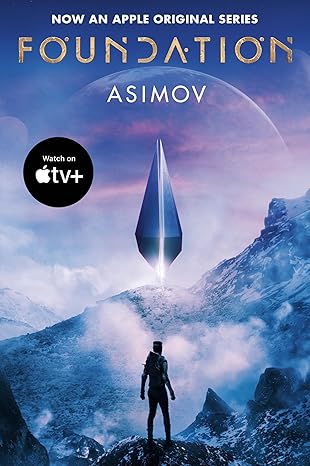
Isaac Asimov’s seminal work follows mathematician Hari Seldon, who develops psychohistory—a method to predict the future of large populations. As the Galactic Empire crumbles, Seldon gathers the best minds to preserve knowledge for future generations. The novel’s grand themes of societal progress and cyclical history provide mature perspectives desired by older audiences.
6. “Brave New World” by Aldous Huxley
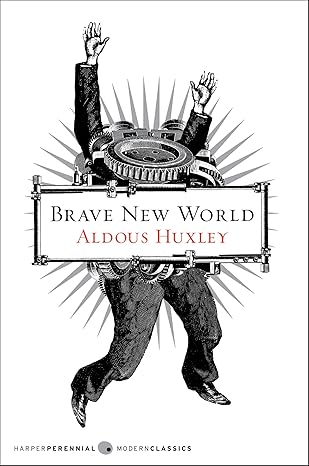
Brave New World” by Aldous Huxley is a dystopian novel set in a highly controlled, futuristic society where technological advancements and genetic engineering have eradicated pain, suffering, and individuality. In this “perfect” world, humans are artificially created, stratified into castes, and conditioned to conform, while pleasure and social stability are maintained through a drug called “soma.”
7. “The Martian Chronicles” by Ray Bradbury
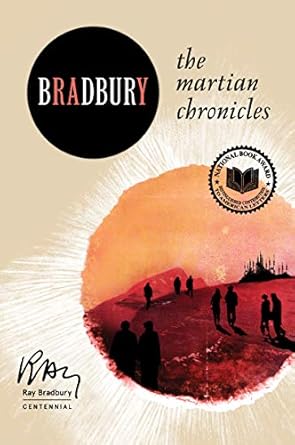
This collection of interconnected short stories portrays the human colonization of Mars and the resulting conflicts with the native Martian population. Ray Bradbury’s poetic prose and contemplative themes on humanity, ambition, and isolation continue to captivate readers.
8. “Binti” by Nnedi Okorafor
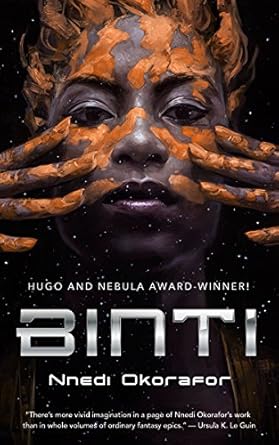
“Binti” tells the story of a young Himba woman who leaves her home to attend a prestigious intergalactic university. While featuring a youthful protagonist, the novella touches on themes of culture, tradition, and personal growth that resonate with all ages. It’s recommended for those looking to explore cultural stories within the SFF genre.
9. “The Murderbot Diaries” by Martha Wells
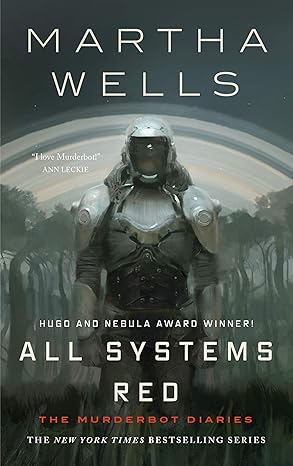
This engaging series follows a self-aware security android that hacks its own governing module to achieve autonomy. As it interacts with humans, it grapples with understanding emotions and relationships, offering a nuanced exploration of humanity. The blend of humor and introspection makes it appealing to readers seeking character-driven narratives.
10. “The Road” by Cormac McCarthy
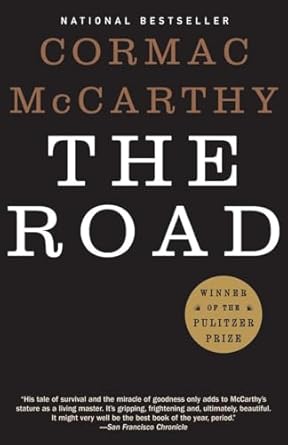
In a post-apocalyptic world, a father and son journey through a desolate landscape, facing dire challenges while holding onto hope. The novel profoundly examines survival, love, and the human spirit, highlighting personal struggles such as heartache and hope. Its starkness and emotional depth offer a compelling read for mature audiences.
Why These Books Matter to Senior Readers
As readers age, their perspectives and interests often evolve. While action-packed adventures remain enjoyable, many seniors may seek stories that offer deeper reflections on life, society, and existential questions. Historically, the sci-fi genre has lacked substantial narratives for those in their later stages of life, but these selections aim to fill that gap by providing thought-provoking content that resonates with mature readers.
These books feature complex characters and multifaceted themes that explore aging, identity, ethics, and the human condition. They invite readers to engage with ideas that challenge perceptions and inspire contemplation, making them particularly meaningful choices for seniors.
Conclusion
Science fiction and fantasy remain vital genres that open doors to new ideas, challenge existing notions, and inspire wonder. For senior readers, these stories can offer fresh perspectives and a deeper understanding of complex themes relevant to life’s later stages. Whether revisiting classics or exploring contemporary works, there’s a wealth of literature waiting to be discovered and appreciated anew.


